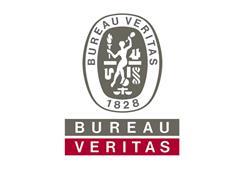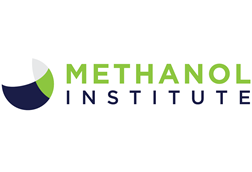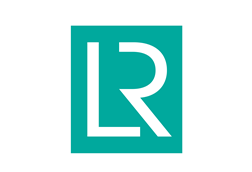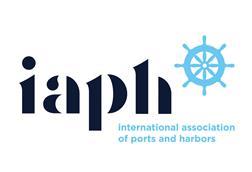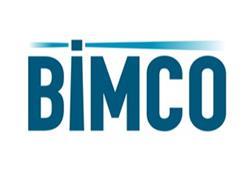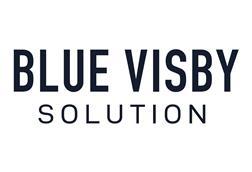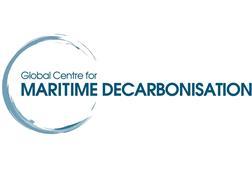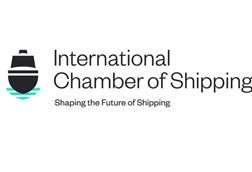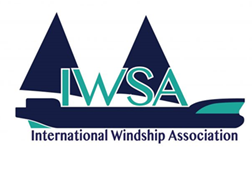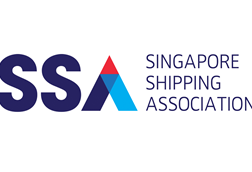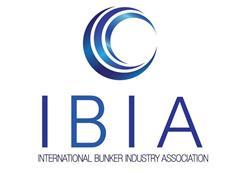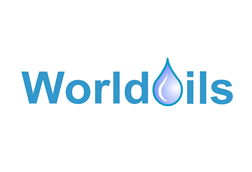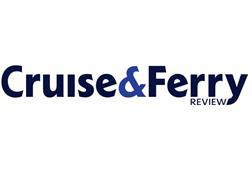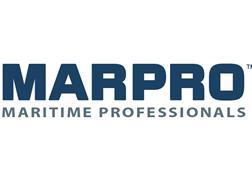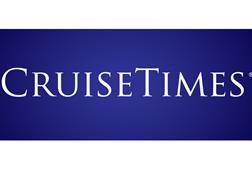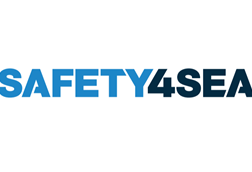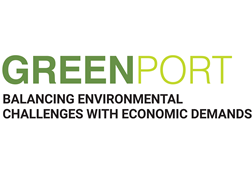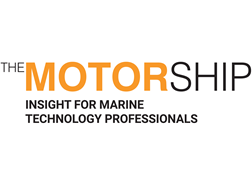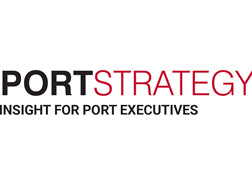Green Ports & Shipping Congress Conference Programme
Please see below the programme for the 2024 Green Ports & Shipping Congress.
View the programme as a PDF here
Places at Green Ports & Shipping Congress included two day conference attendance, lunch and refreshments on both days and full documentation in electronic format.
For further information about Green Ports & Shipping Congress email info@greenseascongress.com or call the Events team on +44 1329 825335.
Day One - Wednesday 8 May 2024
|
08:00 |
Coffee & Registration |
|
09:00 |
Welcome by Chairman/Moderator |
|
09:10 - 09:50 |
Keynote Panel: Ports and Shipping - collaboration to achieve 2050 goals Shipping already has regulations to follow from the IMO but what do they need from Ports to achieve these goals? |
|
|
Moderator: James Forsdyke, Managing Director, Lloyd’s Register Maritime Decarbonisation Hub |
|
Panellists: Er Tham Wai Wah, Chief Sustainability Officer, MPA Dr Sanjay C Kuttan, Chief Strategy Officer, Global Centre for Maritime Decarbonisation Lars Robert Pedersen, Deputy Secretary General, BIMCO Antonis Michail, Technical Director, International Association of Ports and Harbors / World Ports Sustainability Program Eva Liu, Head of Shipment Product, Oceania Market, Maersk; |
|
|
09:50 |
Question & Answer Session |
|
10:30 |
Coffee & Networking |
|
10:55 - 11:55 |
Session 1: Future marine low and zero-carbon fuels Future marine low and zero-carbon fuels including biofuels, methanol, ammonia, and potentially hydrogen. Alternative fuels hold the key to decarbonising the maritime industry, through both emission-free powering of vessels and port operations. |
|
|
Moderator: Lars Robert Pedersen, Deputy Secretary General, BIMCO |
|
Maritime Forecast to 2050 Girish Sreeraman, Area Business Development Manager, Maritime, DNV The Maritime Forecast to 2050 outlines how the maritime industry should continue to collaborate with fuel suppliers and other stakeholders from an early stage so that clarity over demand can be established, paving the way for final investment decisions across the value chain, both onboard and onshore |
|
|
Methanol: A Future-Proof Marine Fuel Morten Jacobsen, CEO, Green Marine, Denmark Methanol has emerged as a leading alternative marine fuel, now dominating the orderbook for newbuild container ships. Let’s explore methanol’s role as a practical, affordable, and sustainable marine fuel, across the full range of shipping |
|
|
Empowering Energy Transition: The Vital Role of Storage Terminals in Decarbonisation Stanley Teo, Vice President of Business Development for Southeast Asia, Advario Advario is one of the leading terminals globally with a wide network of terminals handling a range of products ranging from chemicals, gases and fuels to new energies. Being the preferred partner by many in the industry, Advario will discuss in detail the challenges of the alternative fuels and how terminals play a part in enabling the energy transition. |
|
|
11:40 |
Question & Answer Session |
|
12:15 |
Lunch & Networking |
|
13:40 - 14:40 |
Session 2: Infrastructure Development This session will cover solutions for creating a sustainable port infrastructure including future fuels bunker requirements. |
|
Moderator: Ashish Anilan, Assistant Director iCARE, Sustainability Lead, BV |
|
|
|
Key Opportunities for Ports in Maritime’s Energy Transition Andreas Kalamidas, Business Advisory Consultant, Lloyd’s Register Ports, as vital nodes in global trade, wield significant influence in shaping the maritime industry’s energy transition landscape. We will explore the critical importance of ports in providing a foundation for decarbonization levers to be at the disposal of shipowners and present a robust framework for ports to effectively address the concerns of shipping stakeholders |
|
The Challenges and preparations needed for the first Ammonia Trial in Singapore Andrew Hoare, Group Manager Marine, Fortescue Fortescue, with the support of the Maritime and Port Authority of Singapore (MPA), government agencies, research institutes, and industry partners, has successfully conducted the world’s first use of ammonia, in combination with diesel in the combustion process, as a marine fuel onboard the Singapore-flagged ammonia-powered vessel, the Fortescue Green Pioneer, in the Port of Singapore. |
|
|
Han Ning, Principle Consultant, Drewry Maritime Advisors Key insights from a leading consultant in the region. Drawing on the experience of three greenfield port projects and her work as head of port business in Southeast Asia. |
|
|
14:40 |
Question & Answer Session |
|
15:00 |
Coffee & Networking |
|
Session 3: Green Finance |
|
|
15:30 -16:30 |
Moderator: Jackie Spiteri, Managing Director, Sustainable ESG |
|
Raising money for decarbonization with green, sustainability-linked and transition loans and bonds Pang Toh Wee, Senior Consultant - Maritime Advisory, DNV Sustainable finance in growing exponentially across industries. In the maritime industry, many ship owners, yards and terminal operators have already secured or issued – green, sustainability-linked or transition – loans and bonds. Learn how DNV can support obtaining Sustainable Finance. |
|
|
ASEAN Taxonomy for Sustainable Finance Eugene Wong, Chief Executive Officer, Sustainable Finance Institute Asia The ASEAN Taxonomy is an initiative under the auspices of the ASEAN Finance Ministers and Central Bank Governors to promote sustainable activities and investments, in order to drive the region’s sustainability agenda |
|
|
A bank’s view on financing zero-carbon shipping Jens Van Yperzeele, Director, Sector Coverage Transport & Logistics - Shipping, ING |
|
|
Port Decarbonisation Fund David Albertani, Chief Executive Officer, Catalytic Finance Foundation The Catalytic Finance Foundation, funded by Bloomberg Philanthropies, is pursuing a blended finance initiative under the Catalytic Cities program to decarbonize shipping and ports. The Catalytic Finance Foundation has concluded that targeted investments in proven and standardized technologies at ports can accelerate the transition. |
|
|
16:30 |
Question & Answer Session |
|
16:50 |
Day 1 Conference Close |
Day Two - Thursday, 9 May 2024
|
08:30 |
Coffee & Registration |
|
09:00 |
Opening by Chairman/Moderator |
|
Session 4: Green Shipping Corridors Ports and shippers are signing deals which establish shipping corridors, allowing shipping routes to respond quickly to policy and make rapid decisions to create more sustainable container movement. Hearing from different green corridor projects and partners as to their involvement and collaboration for sustainability. |
|
|
Moderator: Lars Robert Pedersen, Deputy Secretary General, BIMCO |
|
|
09:15 |
Annual Progress Report on Green Shipping Corridors Elena Talalasova, Senior Project Manager, Global Maritime Forum The second edition of the Annual Progress Report on Green Shipping Corridors provides a checkpoint for a movement that, in just over a year, has grown in both numbers and maturity. Learn about a doubling number of initiatives and the notable increase in the level of maturity of these initiatives. |
|
09:30 |
Silk Alliance: An implementation plan Maike Nimmrich, Commercial Asset Manager, MPC Containers, ASA Strategically positioned to lead the maritime energy transition, the Silk Alliance is a Green Corridor and first-mover initiative on zero-emissions shipping, with a fleet that operates across the Indian and Pacific Oceans and fosters partnerships with stakeholders across the maritime supply chain. |
|
09:45 |
MPA’s Green Shipping Corridor Projects Mr Wei Siang New, Director, Maritime Decarbonisation & Net-Zero Pathways, MPA Green Shipping Corridors are maritime shipping routes that showcase low- and zero-emission life cycle fuels and technologies to achieve zero greenhouse gas emissions. Such corridors can spur early and rapid adoption of fuels and technologies that, on a lifecycle basis, deliver low- and zero-emissions across the maritime sector, placing the sector on a pathway to full decarbonization. Join this session to gain valuable insights into MPA’s various Green Shipping Corridors and its strategies to support the decarbonisation of the maritime industry |
|
10:00 |
Emerging Lessons from Global Initiatives Mark Button, Associate, ARUP This presentation will bring together lessons from Arup’s support to Green Shipping Corridor initiatives around the world. This includes technical lessons around energy supply to ports and development of port infrastructure, which can be key bottlenecks in developing zero carbon fuel supply ecosystems. |
|
10:15 |
Question & Answer |
|
10:35 |
Coffee & Networking |
|
Session 5: Maritime Digitalisation This session will feature case studies showcasing the digitalisation solutions and tools supporting ports and shipping in their journey to become more efficient and sustainable. |
|
|
Moderator: Lars Robert Pedersen, Deputy Secretary General, BIMCO |
|
|
10:55 |
The Blue Visby Solution – A multilateral platform for reducing shipping GHG emissions through eradicating “Sail Fast Then Wait” |
|
11:15 |
Modelling Green Corridors for Maritime Decarbonization |
|
11:30 |
Port Optimization for GHG Emissions Reductions |
|
11:55 |
Question & Answer Session |
|
12:15 |
Lunch & Networking |
|
Session 6.1: Onshore Power Supply |
|
|
Moderator: Antonis Michail, Technical Director, International Association of Ports and Harbors / World Ports Sustainability Program IAPH |
|
|
13:45 |
New Shore Power class rules for tankers Kapil Berry, Business Development Director, Maritime, DNV DNV is the first class society globally to introduce new class rules for electrical shore connections specifically tailored for tankers, contributing to setting sector norms |
|
14:00 |
Flexible Systems solve the “Connection dilemma” for the climate-neutral port of the future” Martin Tiling, Head of Business Unit Shore Power, igus GmbH Ports vary in design and equipment. Container ships use cable drums for shore power, but their position on the ship varies. The Port of Hamburg uses igus’s iMSPO system, a movable socket solution that adjusts to the ship’s connection point, accommodating different ship sizes and docking positions. |
|
14:15 |
Alternative Maritime Power: The key to greener ports Dimitris Tsoulos, BLUE CONNECT Director, ERMA FIRST As the gateways to global trade, ports are critical economic and commercial hubs, but they are also a major source of pollution. By connecting to an onshore power supply (OPS), a vessel deploying AMP can receive all the energy it needs to meet hotel load requirements, and so shut down its generators at berth to eliminate emissions, noise and vibrations. |
|
14:30 |
’Making the connection’ Chris Poyner, ABB, Business Manager, Land Based Shore Connection As a leading global supplier of both ship and land-side electrical infrastructure, ABB shares an insight into the available technologies for shore connection and charging, supported by real-world case studies detailing how these have been implemented.
|
|
14:45 |
Question & Answer Session |
|
15:05 |
Coffee & Networking |
|
Session 6.2 - Green Technologies Ports and shippers are introducing green technology, enhancing sustainability, and reducing their carbon footprint. This session will detail these technologies and how it affects both the portside and seaside. Moderator: Ilias Soultanias, Managing Principal Engineer, Sustainability, ABS |
|
|
13:45
|
Carbon Capture Projects in Europe and Southeast Asia, Challenges and Opportunities Dr. Haoxin Xu, Lead Consultant, Department of Waste-to-Energy & Carbon Capture, Ramboll This presentation delves into case studies derived from Ramboll’s hands-on involvement in Carbon Capture projects within Waste-to Energy and Cement manufacturing facilities in Europe. Specifically, we analyze the technology landscape, procurement strategy, and commercial setup, as well as assess the financial viability of these initiatives |
|
14:00 |
Onboard Carbon Capture – Technologies, Regulations, Challenges & Value Chain Mike Watt, Director iCARE / Future Shipping Team SAZ, Bureau Veritas Marine This session dives into onboard carbon capture (OCC) for cleaner shipping. It explores the technology’s current state, its potential for emission reduction, and existing capture methods. Finally, the presentation will explore how Bureau Veritas, a classification society, contributes to the OCC value chain through expertise, safety assessments, and compliance verification. |
|
14:15 |
Beyond onboard carbon capture – Unlocking the carbon value chain Eng Kiong, Director, Projects, Global Centre for Maritime Decarbonisation With zero-carbon fuel availability uncertain and cost premium high, shipowners are increasingly looking to Onboard Carbon Capture and Storage (OCCS) as a key interim solution. However, large-scale commercialisation of OCCS requires clear pathways for captured CO2. This presentation dives into GCMD’s initiative aims to unlock the carbon value chain of OCCS, encompassing offloading, utilisation, and sequestration. |
|
14:30 |
ECOsubsea AS sustainable hull cleaning Tor Østervold, Co-founder and CEO, ECOsubsea AS Biofouling removal is essential to optimize vessel performance, save fuel and reduce emissions, while at the same time protecting the marine ecosystem from the scourge of invasive species transfer between geographies as well as microplastics pollution. |
|
14:45 |
Question & Answer Session |
|
15:05 |
Coffee & Networking |
|
Session 7: Collaborative projects Collaborative projects to advance the deployment of zero/low-carbon solutions in the maritime industry. Detailing different projects that utilise different stages of the logistics chain |
|
|
Moderator: Lars Robert Pedersen, Deputy Secretary General, BIMCO |
|
|
15:25 |
Solving the challenges for decarbonization of the maritime industry Peter Bos, Leading professional Maritime solutions for Renewable energies, Royal HaskoningDHV The maritime industry is eager to embrace change but faces hurdles in decarbonization. Challenges include unclear regulations, profitability concerns, renewable energy shortages, infrastructure investment dilemmas, unresolved technical and efficiency issues, and the fear of making wrong choices. To navigate these challenges, collaboration is essential to create a concrete roadmap for a sustainable future. |
|
15:40 |
Collaboration with Green Marine on methanol bunkering training and other collaborative projects Siti Noraini Zaini, Regional Manager (Asia), IBIA IBIA and Green Marine have worked together with the crew from the supplying tanker and the bunker surveyors involved in the methanol bunkering pilot in Singapore, identifying and plugging the training gaps and competency needs prior to the pilot. |
|
15:55 |
Routes-based action plans: a toolkit Taylor Wamberg, Regional Maritime Commercial Markets Manager, Lloyd’s Register |
|
16:10 |
Convening Stakeholders to Enable Maritime Decarbonization Archana Kannan, Senior Manager, Green Shipping Corridors, C40 Cities and Strategy Consultant, Advisory, Arup This presentation will look at the importance of a multi-stakeholder approach for success in maritime decarbonization, with a particular focus on the necessary collaboration between ports and cities. It will look at strategies and initiatives for collaborative emissions reduction, innovation, and sustainable practices, with examples from leading port cities worldwide. The session will also discuss the key enablers and best practices for fostering successful collaboration. |
|
16:25 |
Question & Answer Session |
|
16:45 |
Conference Wrap up by Conference Chairman/Moderator |
|
16:55 |
Conference Close |
Fee Includes
Conference attendance on 8th & 9th
Full documentation,
Lunch & refreshments,
Conference Fee
Cost per delegate (standard rate)
$1895
10%-20% discount for members of official supporters.
Contact Us
For further information on exhibiting, sponsoring, or attending the conference, contact the Events team on: +44 1329 825335 or info@greenseascongress.com
Booking Online
Book online here or complete and fax the booking form to +44 1329 550192.
On receipt of your registration, you will be sent confirmation of your delegate place.

